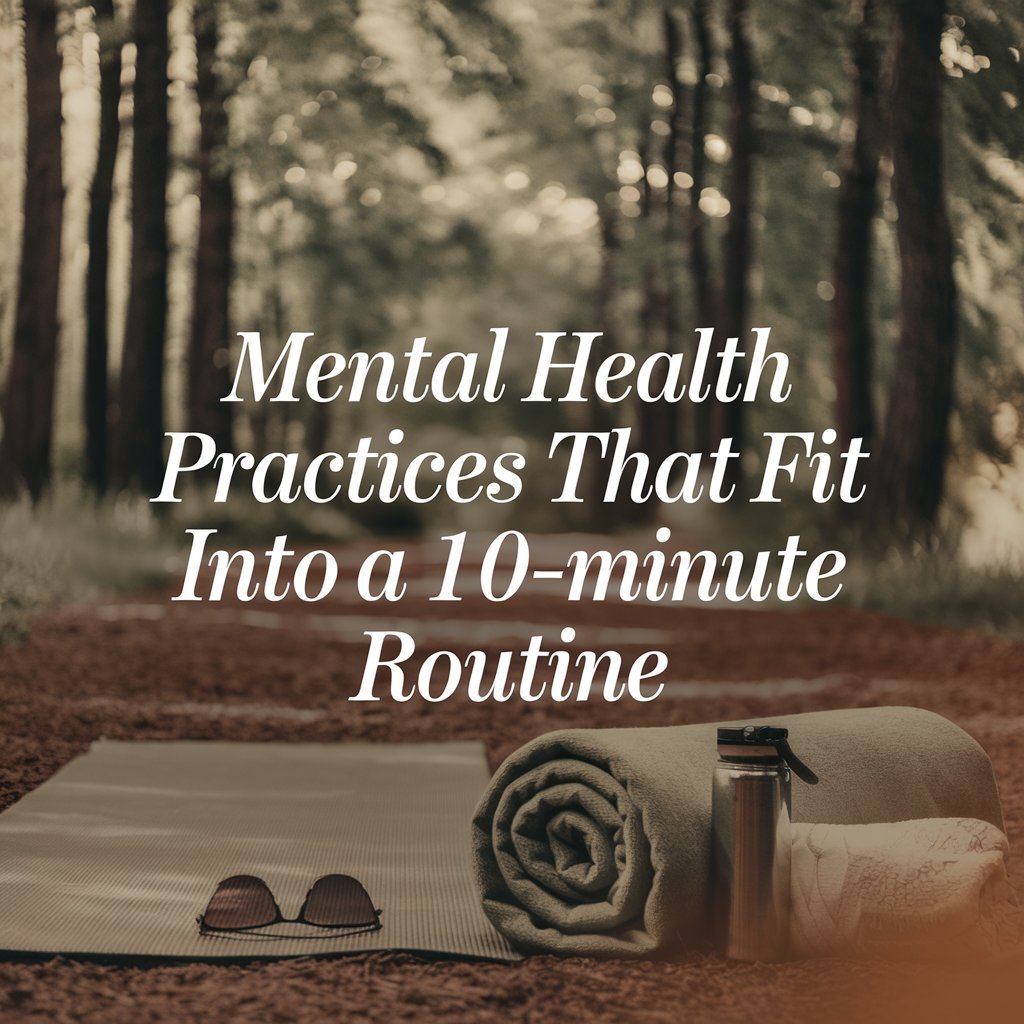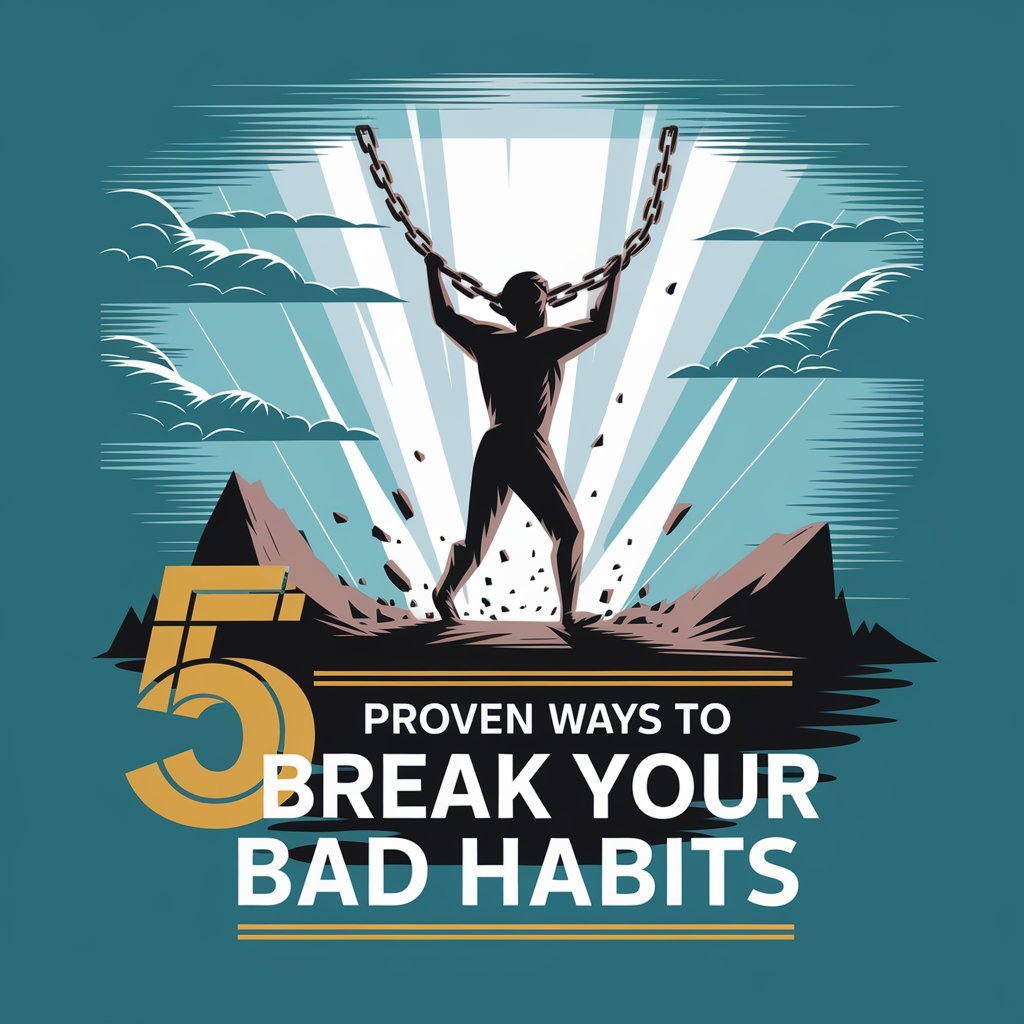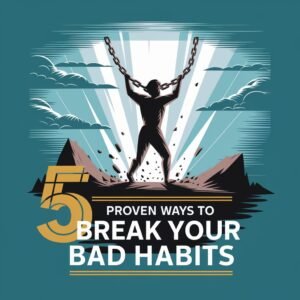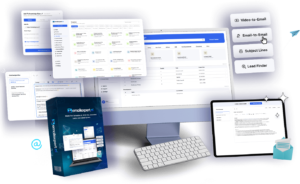Best Quick Mental Health Practices: 10-Minute Self-Care Guide

Do you find it hard to fit self-care into your busy life? The key to good mental health might be simple, quick practices. This guide shows you the best fast mental health tips. They can fit into your day, helping you stay clear-minded and handle stress.
Key Takeaways
- Discover the science behind the impact of short self-care sessions on mental health
- Learn quick meditation and breathing exercises for instant calm and relaxation
- Explore physical movement and sensory practices that boost mental well-being
- Incorporate digital detox and creative activities into your 10-minute routine
- Build a sustainable quick mental health practice tailored to your unique needs
Understanding the Importance of Quick Mental Health Practices
In today’s fast world, finding time for self-care can be hard. Yet, research shows that 10-minute mindfulness exercises and bite-sized self-care habits can greatly improve our mental health. By adding quick mental health practices to our morning routines for mental health, we can handle daily stress better and boost our emotional strength.
Feeling overwhelmed? Transform your mental strength with daily practices designed for sensitive individuals. Start here
The Science Behind Short Self-Care Sessions
Studies reveal that short exercise sessions can cut the risk of major depression by 26%. Just 30 minutes of moderate activity five times a week can bring physical and mental health benefits. Exercise also boosts the brain’s feel-good chemicals, like dopamine and serotonin, helping us focus and pay attention.
Why 10 Minutes Matter for Mental Wellness
Creating new routines can be a strong way to boost mental health in uncertain times. Starting quick self-care habits, like a daily walk or brief meditation, can give us a sense of control and reduce anxiety. Even small, consistent changes can lead to big improvements in well-being in just a few weeks.
Impact on Daily Stress Management
Practicing bite-sized self-care has been proven to lower stress, improve focus, and increase happiness. These quick mental health practices can stop burnout, especially for those in high-stress jobs. By making self-care a priority, even for just 10 minutes a day, we can handle daily life better and live a healthier, more balanced life.
Need practical tools for daily life success? The Practical Life Skills Workbook is a must-have. Discover it now on AMAZON
Best Mental Health Practices That Fit into a 10-Minute Routine

Finding time for mental health in our busy world is tough. But, adding mental well-being hacks and 10-minute anxiety busters to your day can really help. These small self-care steps can boost your mood and reduce stress.
Deep breathing exercises are a simple yet powerful 10-minute practice. They slow your heart rate and lower blood pressure. This can make you feel calm and centered.
Quick meditation is also great for your mind. It can be a guided session or just a few minutes of quiet. Studies show it can make you feel better in just 10 minutes.
- Try a quick body scan to feel more present.
- Do a 5-minute gratitude practice to think positive thoughts.
- Listen to uplifting music or nature sounds to lift your mood.
Moving your body can also help your mind. A short 10-minute walk or some light stretching can ease anxiety and boost energy. These activities are easy to fit into your day.
Starting small and being consistent is key to a good mental health routine. By spending just a few minutes each day on these mental well-being hacks, you can improve your mood and well-being over time.
Mindful Breathing and Meditation Techniques for Instant Calm
Mindful breathing and meditation are great for quick stress relief. They are simple yet powerful. You can do them daily to find calm in busy life.
Equip yourself with the knowledge to better support family and friends facing mental health challenges. Get A Comprehensive Guide to Mental Health Disorders today on AMAZON.
Deep Breathing Exercises
Diaphragmatic breathing, or belly breathing, is very effective. It lowers stress hormones and brings calm. Just breathe deeply through your nose and slowly out your mouth for a few minutes.
Guided Visualization Tips
Guided visualization can quickly reduce stress and anxiety. Imagine yourself in a peaceful place, like a beach or forest. Focus on the details of this place to relax your mind.
Quick Meditation Practices
Even a 10-minute meditation can help a lot. Try body scan meditation or focus on one thing. These can clear your mind and bring peace.
Adding these practices to your day can change your mental health. Just a few minutes can make you feel calmer and stronger against life’s challenges.
Physical Movement as Mental Health Boosters

Adding quick physical activities to your day can really help your mental health. Just a 10-minute walk, a short yoga session, or some light exercises can make a big difference. They can improve your mood, reduce stress, and boost your energy.
Women in their 40s might find that 30 minutes of strength training three times a week helps a lot. Stretching or dancing to your favorite song can also make you feel better mentally.
Regular exercise is great for sleep, which is key for mental well-being hacks. So, don’t overlook the importance of quick morning routines for mental health and daily mood boosters in your day.
- A 10-minute walk can reduce fatigue, improve concentration, and induce positive emotions.
- Engaging in yoga or Tai Chi can help calm the nervous system and encourage mindfulness.
- Breathing techniques like Diaphragmatic Breathing and Box Breathing can be effective for calming the mind.
“Being in nature can reduce stress hormones, lower blood pressure, and improve heart rate.”
If you want to improve your mental well-being hacks, try adding some quick physical activities to your day. Whether it’s a brisk walk, a yoga session, or some light strength training, it’s good for your mind and body.
Quick Grounding Exercises and Sensory Practices
In today’s fast world, it’s key to slow down and connect with our senses. Mindfulness and sensory activities help us manage stress and anxiety. By taking 10 minutes for body scans, sensory exploration, and grounding, we can find calm and presence.
Body Scan Techniques
Body scan meditation focuses on each body part, from toes to head. It helps us relax, become more aware of our body, and feel grounded. By noticing physical sensations, we can let go of tension and stay present.
Sensory Awareness Activities
Using our senses can stop anxious thoughts quickly. Sensory awareness activities like the 5-4-3-2-1 technique help us focus on what we see, hear, touch, smell, and taste. This brings us back to the present, easing anxiety and boosting mindfulness.
Grounding Methods for Anxiety Relief
When anxiety hits, grounding methods like the 54321 technique are helpful. This involves noticing 5 things we see, 4 things we feel, 3 things we hear, 2 things we smell, and 1 thing we taste. It helps us shift our focus and find calm.
Adding these mindfulness exercises, stress relief activities, and 10-minute anxiety busters to our daily lives can improve our well-being. Just a few minutes of grounding can greatly benefit our mental and emotional health.
Digital Detox and Mindful Technology Use
In today’s world, it’s easy to get lost in digital distractions. But, setting limits on technology can boost your mental well-being hacks and life quality. Just 10 minutes away from screens can cut stress and boost focus, making it a key bite-sized self-care habit.
Mindful tech use means less social media, fewer notifications, and apps for stress relief activities. These habits can improve sleep, lower anxiety, and enhance mental health. Many choose a 30-day social media detox, while others prefer shorter or longer breaks.
“Clearing mental clutter through a social media detox can help individuals feel more positive and less cynical.”
Social media’s effect on mental health is clear. Scientists have made these platforms addictive, which can increase anxiety and depression. Stepping away from social media can reduce comparison and boost positivity.
Mindful tech use is more than just screen time limits. It also includes other healthy habits, such as:
- Aiming for 7-9 hours of quality sleep each night
- Maintaining a balanced diet rich in fruits, vegetables, whole grains, and lean protein
- Engaging in at least 30 minutes of moderate-intensity exercise most days of the week
- Practicing mindfulness meditation, yoga, or deep breathing exercises to manage stress
- Connecting with friends and family for social support
- Seeking therapy for emotional challenges and coping strategies
By adding these mental well-being hacks and bite-sized self-care habits to your routine, you can build a lasting stress relief activities plan. This plan will nourish your mental and physical health.
Take control of your stress and boost your well-being! Discover effective techniques in the Stress Proof Your Life video course. Start now!
Express Self-Care Through Creative Activities
Doing brief creative activities can really help your mental health. It could be quick journaling, simple art, or listening to music that lifts your mood. These activities are great for expressing feelings and can fit into a 10-minute self-care routine.
Quick Journaling Prompts
Writing down your thoughts and feelings can clear your mind. Set a timer for 5-10 minutes and try prompts like “What am I grateful for today?” or “How do I want to feel by the end of the day?” These short writing sessions can really boost your mood.
Artistic Expression Methods
Doing simple art like doodling or coloring can be calming and meditative. Grab a sketchpad, colored pencils, or a blank paper and let your creativity flow. Creating something can be a great mental health hack for your daily routine.
Music and Mood Enhancement
Listening to or making music for a few minutes can change your mood and reduce stress. Make a playlist of your favorite songs and take a break whenever you need it. You can also try playing an instrument or humming to express your feelings through sound.
These creative activities offer a great way to express your feelings and can be part of your daily life. Try different activities and find what works best for you. Embracing these brief creative moments can greatly improve your mental health and well-being.
Building a Sustainable Quick Mental Health Routine
Creating a sustainable mental health routine means doing quick practices every day. Start with a short morning meditation or end with a gratitude practice. Mix activities like physical movement, mindfulness, and creative expression for a balanced routine.
Being consistent, even for a few minutes, is crucial. Tailor your bite-sized self-care habits to fit your life and schedule. This makes it easier to keep up with evening relaxation rituals for long-term mental health.
| Morning Routines for Mental Health | Evening Relaxation Rituals |
|---|---|
| 5-minute meditation Journaling prompts Gentle stretching | Mindful breathing exercises Gratitude practice Artistic expression |
Adding these bite-sized self-care habits to your daily life can greatly improve your mental health. Start small, stay consistent, and see how these quick mental health practices become a big part of your wellness journey.
“Consistency is key when building a sustainable mental health routine. Even small, 10-minute practices can make a big difference in your overall well-being.”
Your mental health journey is unique, so try different quick self-care activities to find what works best for you. Use morning routines for mental health and evening relaxation rituals to build a balanced, mindful, and resilient life.
Ready to live stress-free? Gain practical tools and insights to manage stress with ease in this HD video course. Enroll today!
Conclusion
Quick mental well-being hacks and bite-sized self-care habits can greatly improve your mental health. These 10-minute routines are easy to fit into your day. They help manage stress, boost mood, and build mental strength.
It’s important to pick practices that feel right to you. Doing them regularly can make a big difference in your mental health. Even small actions can lead to big benefits.
Activities like mindful breathing, moving your body, or being creative can help. Spending just 10 minutes a day on these can bring balance and peace. It prepares you to handle life’s ups and downs.
The strength of bite-sized self-care habits is in their lasting impact. By doing them every day, you can change your life for the better. These practices help you live a healthier, more balanced life.
FAQ
What are the best quick mental health practices that can be completed in 10 minutes or less?
Quick mental health practices include deep breathing and guided visualization. Also, meditation, physical activities, and body scans are great. Sensory awareness, grounding methods, and mindful tech use are also beneficial. Creative expressions like journaling and music are excellent too.
How can short self-care sessions impact mental health?
Short self-care sessions can greatly improve mental health. They reduce stress and boost mood. They also help focus and build emotional resilience. Regular self-care, even for a few minutes, can lead to better well-being.
What are the benefits of incorporating 10-minute mental health practices into daily routines?
Incorporating 10-minute practices into daily routines offers many benefits. They provide immediate calm and manage stress and anxiety. They also improve mood and energy levels. These practices are easy to fit into busy schedules, making self-care a priority.
What are some examples of effective 10-minute meditation and mindfulness techniques?
Effective 10-minute techniques include deep breathing and guided visualization. Body scans and sensory awareness are also helpful. Grounding methods like the 5-4-3-2-1 technique can quickly reduce stress and improve clarity.
How can brief physical activities boost mental health in just 10 minutes?
Brief physical activities like walking or yoga can greatly improve mood. They reduce stress and increase energy. Even simple movements like stretching can support better sleep and mental health.
What are some quick digital detox and mindful technology use practices?
Quick digital detox practices include taking breaks from devices and limiting social media. Turning off notifications and using well-being apps are also helpful. These habits can lead to better sleep and reduced anxiety in just 10 minutes.
How can brief creative activities boost mental health?
Brief creative activities like journaling or doodling can enhance mood and reduce stress. They provide an outlet for emotions. These activities can be easily added to a 10-minute self-care routine.
What are the key components of building a sustainable quick mental health routine?
Building a sustainable routine involves variety and personal connection. It’s important to make these practices consistent, even if it’s just a few minutes a day. Consistency leads to significant improvements in well-being.














Post Comment